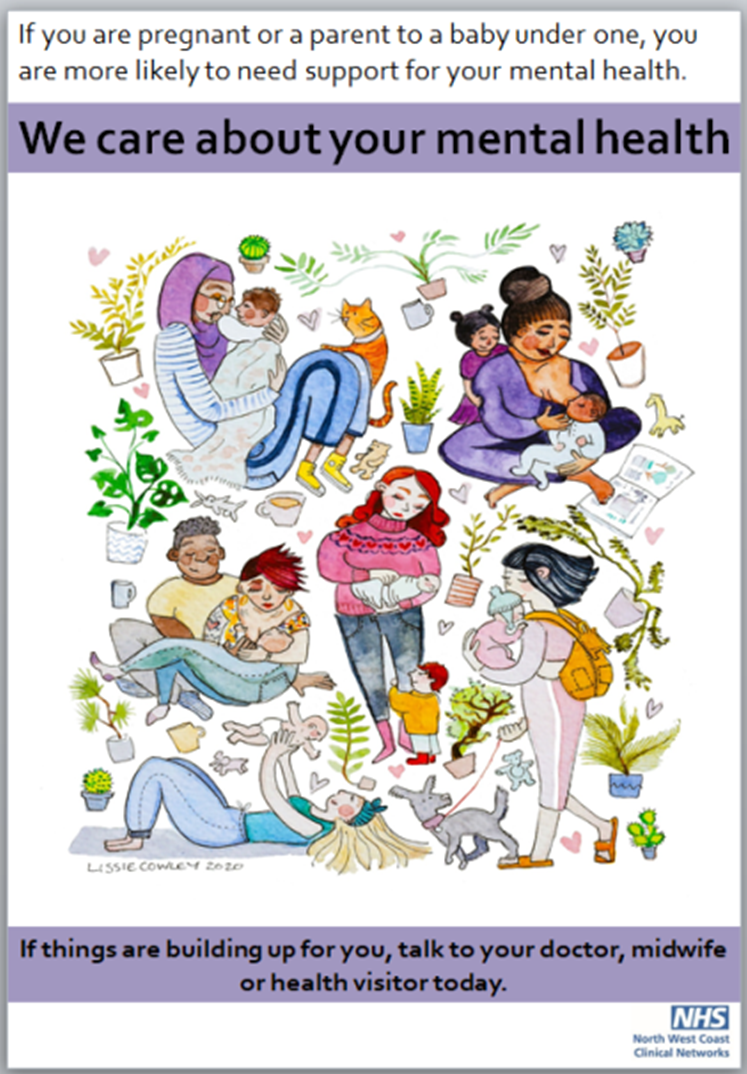Mental health
Pregnancy and the period after your baby is born (known as the perinatal period) are often talked about as the happiest time in a parent’s life. This can cause pressure, leading to feeling that you should or ought to be “happy”. But sometimes it doesn’t always feel that way.
In the perinatal period you are more likely to need support for your mental health. There are lots of changes that come with pregnancy and parenthood – physical, hormonal along with alteration to relationships and social groups – all of which can affect you at different times.
Emotional wellbeing, or mental health, is just as important as physical health. Up to one-in-five women and one-in-10 men are affected by mental health problems during the perinatal period, and recent research shows this number might in fact be even higher.
This film, which is produced by Perinatal Positivity, and uses the real voices and experiences of women and men who have had mental wellbeing difficulties around the time of pregnancy, childbirth and beyond.

- Asking about your mental health
At your first appointment with your midwife, you will be asked about your physical and mental health history including family history. You will also be asked how you are feeling about your pregnancy, childbirth and your baby to help plan your care.
During your pregnancy and after you have had your baby, your midwife will continue to ask you about your mental health and emotional wellbeing. Through discussion with you, your midwife will offer options for support to meet your needs.
Pregnancy and parenthood can be a challenging time, and it’s important to stay well. The first step is to speak to someone about how you’re feeling.
Seeking help is not always easy, especially when you are not feeling well. However, taking that first step of asking for support shows strength, courage and will always be viewed as a positive step. There are support and treatment options available that might be able to help you to cope with your difficulties. This could be talking therapies, a specialist midwife, specialist perinatal mental health services or GP.
- Bonding with your baby
During the last three months of pregnancy and the first two years of life your baby’s brain is developing at a rapid rate.
Taking time out every day to relax, stroke your bump, talk or sing to your growing baby and respond to your baby’s movements.
Developing a will help develop a close and loving relationship with your baby will lay the building blocks for them growing into a secure and confident child and adult.
- Medication in pregnancy and breastfeeding
If you are taking medication for your mental health, do not stop without seeking medical advice. Stopping your medication can make your illness return or become worse.
Further information on medication during pregnancy is available on the BUMPS website.
You can still breastfeed whilst taking most medications for your mental health. Further information is available on the Lactmed website.
